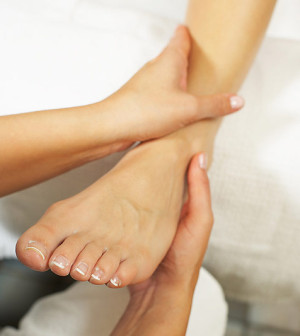- Could Artificial Sweeteners Be Aging the Brain Faster?
- Techniques for Soothing Your Nervous System
- Does the Water in Your House Smell Funny? Here’s Why
- Can a Daily Dose of Apple Cider Vinegar Actually Aid Weight Loss?
- 6 Health Beverages That Can Actually Spike Your Blood Sugar
- Treatment Options for Social Anxiety Disorder
- Understanding the Connection Between Anxiety and Depression
- How Daily Prunes Can Influence Cholesterol and Inflammation
- When to Take B12 for Better Absorption and Energy
- Epsom Salts: Health Benefits and Uses
Do You Need a Doctor for Bug Bites and Bee Stings?


Summer is fast approaching, along with its usual bonanza of bugs. Fortunately, most of those inevitable bites and stings aren’t serious.
But, experts from the American Academy of Dermatology advise going to the emergency room right away if you notice any of the following symptoms soon after a bug bite or sting:
- Difficulty breathing,
- The feeling that your throat is closing,
- Swelling of lips, tongue or face,
- Chest pain,
- A racing heartbeat for more than a few minutes,
- Dizziness or headache,
- Vomiting.
Also beware of a red rash that looks like a donut or bullseye target after a tick bite, or a fever with a spreading red or black spotty rash. These can be signs of serious tick-related illness.
“Although most bug bites and stings do not turn into a severe or even fatal illness like Rocky Mountain spotted fever, it’s important to pay attention to your symptoms,” Dr. Margaret Parsons, an associate clinical professor of dermatology at the University of California, Davis, said in an academy news release.
Parsons added that if you feel tired all the time, have a headache, fever or body aches, or you develop a rash after a bug bite, see your doctor.
However, home care is fine for most bites and stings, according to Parsons.
In general, bites and stings “can be safely treated at home with topical medication, such as hydrocortisone cream or ointment, or an oral antihistamine to reduce the itch,” said Parsons.
More information
The U.S. Centers for Disease Control and Prevention offers more on preventing bites and stings.
Source: HealthDay
Copyright © 2026 HealthDay. All rights reserved.










